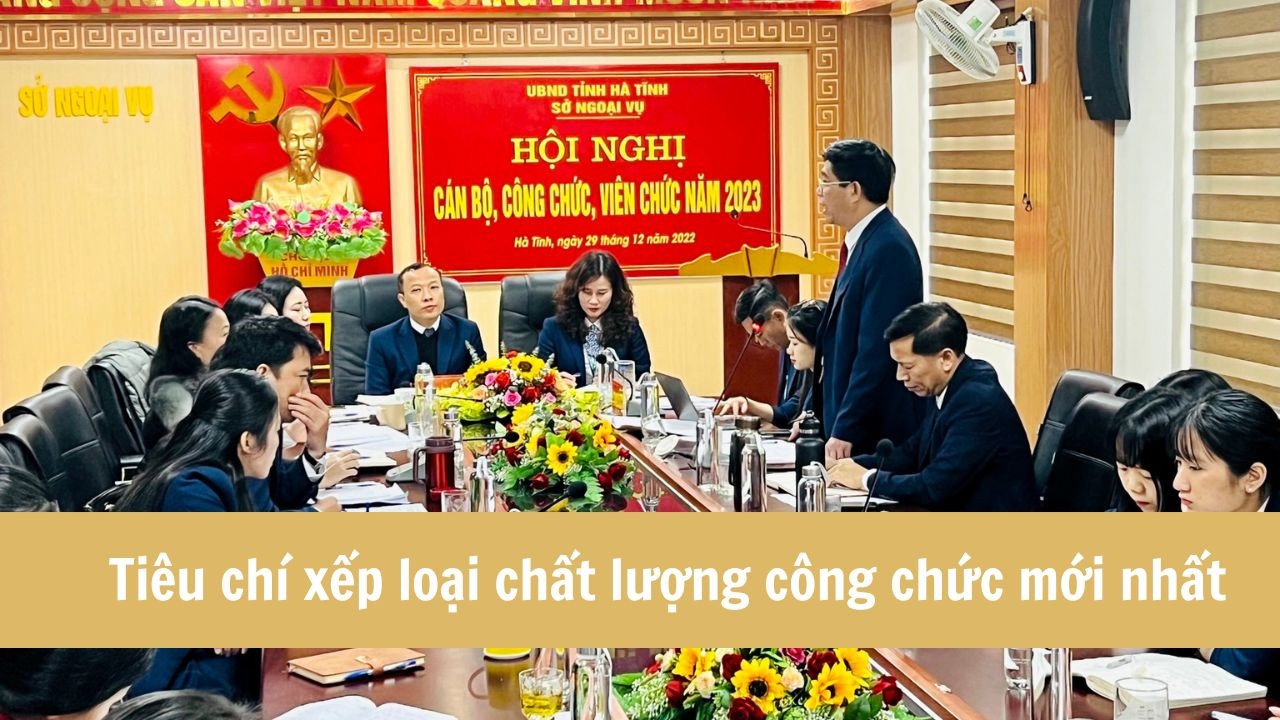 Tìm kiếm
Tìm kiếm
Chương III Luật cán bộ, công chức 2008: Cán bộ ở trung ương, cấp tỉnh, cấp huyện
| Số hiệu: | 22/2008/QH12 | Loại văn bản: | Luật |
| Nơi ban hành: | Quốc hội | Người ký: | Nguyễn Phú Trọng |
| Ngày ban hành: | 13/11/2008 | Ngày hiệu lực: | 01/01/2010 |
| Ngày công báo: | 10/03/2009 | Số công báo: | Từ số 143 đến số 144 |
| Lĩnh vực: | Bộ máy hành chính | Tình trạng: | Còn hiệu lực |
TÓM TẮT VĂN BẢN
Văn bản tiếng việt
Văn bản tiếng anh
1. Cán bộ quy định tại khoản 1 Điều 4 của Luật này bao gồm cán bộ trong cơ quan của Đảng Cộng sản Việt Nam, Nhà nước, tổ chức chính trị - xã hội ở trung ương, cấp tỉnh, cấp huyện.
2. Cơ quan có thẩm quyền của Đảng Cộng sản Việt Nam căn cứ vào điều lệ của Đảng Cộng sản Việt Nam, của tổ chức chính trị - xã hội và quy định của Luật này quy định cụ thể chức vụ, chức danh cán bộ làm việc trong cơ quan của Đảng Cộng sản Việt Nam, tổ chức chính trị - xã hội.
Chức vụ, chức danh cán bộ làm việc trong cơ quan nhà nước được xác định theo quy định của Luật tổ chức Quốc hội, Luật tổ chức Chính phủ, Luật tổ chức Toà án nhân dân, Luật tổ chức Viện kiểm sát nhân dân, Luật tổ chức Hội đồng nhân dân và Uỷ ban nhân dân, Luật kiểm toán nhà nước và các quy định khác của pháp luật có liên quan.
1. Thực hiện các nghĩa vụ, quyền quy định tại Chương II và các quy định khác có liên quan của Luật này.
2. Thực hiện nhiệm vụ, quyền hạn theo quy định của Hiến pháp, pháp luật và điều lệ của tổ chức mà mình là thành viên.
3. Chịu trách nhiệm trước Đảng, Nhà nước, nhân dân và trước cơ quan, tổ chức có thẩm quyền về việc thực hiện nhiệm vụ, quyền hạn được giao.
Việc bầu cử, bổ nhiệm chức vụ, chức danh cán bộ trong cơ quan của Đảng Cộng sản Việt Nam, tổ chức chính trị - xã hội được thực hiện theo quy định của điều lệ, pháp luật có liên quan.
Việc bầu cử, phê chuẩn, bổ nhiệm chức vụ, chức danh cán bộ theo nhiệm kỳ trong cơ quan nhà nước từ trung ương đến cấp huyện được thực hiện theo quy định của Hiến pháp, Luật tổ chức Quốc hội, Luật tổ chức Chính phủ, Luật tổ chức Hội đồng nhân dân và Uỷ ban nhân dân, Luật tổ chức Tòa án nhân dân, Luật tổ chức Viện kiểm sát nhân dân, Luật kiểm toán nhà nước, Luật bầu cử đại biểu Quốc hội, Luật bầu cử đại biểu Hội đồng nhân dân.
1. Việc đào tạo, bồi dưỡng cán bộ phải căn cứ vào tiêu chuẩn, chức vụ, chức danh cán bộ, yêu cầu nhiệm vụ và phù hợp với quy hoạch cán bộ.
2. Chế độ đào tạo, bồi dưỡng cán bộ do cơ quan có thẩm quyền của Đảng Cộng sản Việt Nam, Uỷ ban thường vụ Quốc hội, Chính phủ quy định.
1. Căn cứ vào yêu cầu nhiệm vụ, quy hoạch cán bộ, cán bộ được điều động, luân chuyển trong hệ thống các cơ quan của Đảng Cộng sản Việt Nam, Nhà nước, tổ chức chính trị - xã hội.
2. Việc điều động, luân chuyển cán bộ được thực hiện theo quy định của pháp luật và của cơ quan có thẩm quyền.
Đánh giá cán bộ để làm rõ phẩm chất chính trị, đạo đức, năng lực, trình độ chuyên môn, nghiệp vụ, kết quả thực hiện nhiệm vụ được giao. Kết quả đánh giá là căn cứ để bố trí, sử dụng, đào tạo, bồi dưỡng, khen thưởng, kỷ luật và thực hiện chính sách đối với cán bộ.
1. Cán bộ được đánh giá theo các nội dung sau đây:
a) Chấp hành đường lối, chủ trương, chính sách của Đảng và pháp luật của Nhà nước;
b) Phẩm chất chính trị, đạo đức, lối sống, tác phong và lề lối làm việc;
c) Năng lực lãnh đạo, điều hành, tổ chức thực hiện nhiệm vụ;
d) Tinh thần trách nhiệm trong công tác;
đ) Kết quả thực hiện nhiệm vụ được giao.
2. Việc đánh giá cán bộ được thực hiện hàng năm, trước khi bầu cử, phê chuẩn, bổ nhiệm, quy hoạch, điều động, đào tạo, bồi dưỡng, khi kết thúc nhiệm kỳ, thời gian luân chuyển.
Thẩm quyền, trình tự, thủ tục đánh giá cán bộ được thực hiện theo quy định của pháp luật và của cơ quan có thẩm quyền.
1. Căn cứ vào kết quả đánh giá, cán bộ được phân loại đánh giá như sau:
a) Hoàn thành xuất sắc nhiệm vụ;
c) Hoàn thành nhiệm vụ nhưng còn hạn chế về năng lực;
2. Kết quả phân loại đánh giá cán bộ được lưu vào hồ sơ cán bộ và thông báo đến cán bộ được đánh giá.
3. Cán bộ 02 năm liên tiếp hoàn thành nhiệm vụ nhưng còn hạn chế về năng lực hoặc có 02 năm liên tiếp, trong đó 01 năm hoàn thành nhiệm vụ nhưng còn hạn chế về năng lực và 01 năm không hoàn thành nhiệm vụ thì cơ quan, tổ chức có thẩm quyền bố trí công tác khác.
Cán bộ 02 năm liên tiếp không hoàn thành nhiệm vụ thì cơ quan, tổ chức có thẩm quyền miễn nhiệm, cho thôi làm nhiệm vụ.
1. Cán bộ có thể xin thôi làm nhiệm vụ hoặc từ chức, miễn nhiệm trong các trường hợp sau đây:
a) Không đủ sức khỏe;
b) Không đủ năng lực, uy tín;
c) Theo yêu cầu nhiệm vụ;
d) Vì lý do khác.
2. Thẩm quyền, trình tự, thủ tục xin thôi làm nhiệm vụ, từ chức, miễn nhiệm được thực hiện theo quy định của pháp luật và của cơ quan có thẩm quyền.
1. Cán bộ được nghỉ hưu theo quy định của Bộ luật lao động.
2. Trước 06 tháng, tính đến ngày cán bộ nghỉ hưu, cơ quan, tổ chức, đơn vị quản lý cán bộ phải thông báo cho cán bộ bằng văn bản về thời điểm nghỉ hưu; trước 03 tháng, tính đến ngày cán bộ nghỉ hưu, cơ quan, tổ chức, đơn vị quản lý cán bộ ra quyết định nghỉ hưu.
3. Trong trường hợp đặc biệt, đối với cán bộ giữ chức vụ từ Bộ trưởng hoặc tương đương trở lên có thể được kéo dài thời gian công tác theo quy định của cơ quan có thẩm quyền.
CADRES AT CENTRAL, PROVINCIAL AND DISTRICT LEVELS
1. Cadres defined in Clause 1, Article 4 of this Law include those working in agencies of the Communist Party of Vietnam, the State and socio-political organizations at the central, provincial and district levels
2. Competent agencies of the Communist Party of Vietnam shall base themselves mi tin statutes of the Party and socio-political organizations and this Law lo specify posts and titles for cadres working in agencies of the Communist Party of Vietnam and socio-political organizations.
The posts and titles of cadres working in state agencies shall be determined under the Law on Organization of the National Assembly, the Law on Organization of the Government, the Law on Organization of People’s Courts, the Law on Organization of People’s Procuracies, the Law on Organization of People’s Councils and People’s Committees, the Law on State Audit and other relevant laws.
Article 22. Obligations and rights of cadres
1. To perform the obligations and exercise powers defined in Chapter II and other relevant provisions of this Law.
2. To perform the obligations and exercise powers in accordance with the Constitution, laws and statutes of organizations of which they are members.
3. To take responsibility to the Party, State and people as well as competent agencies for the performance of obligations and exercise of powers as assigned.
Article 23. Election, appointment of posts and titles of cadres in agencies of the Communist Party of Vietnam and socio-political organizations
The election and appointment of posts and title of cadres in agencies of the Communist Party of Vietnam and socio-political organizations comply with relevant statutes and laws.
Article 24. Election, approval and appointment of posts and titles of cadres in state agencies
The election, approval and appointment of posts and tiles of cadres working according to term of office in state agencies from the central to district level comply with the Constitution, the Law on Organization of the National Assembly, the Law on Organization of the Government, the Law on Organization of People’s Councils and People’s Committees, the Law on Organization of People’s Courts, the Law on Organization of People’s Procuracies, the Law on Election of National Assembly Deputies and the Law on Election of People’s Council Deputies.
Article 25. Training and retraining of cadres
1. The training and retraining of cadres must be based on cadre criteria, posts and titles, task requirements and conform to the personnel planning.
2. The cadre training and retraining regime shall be prescribed by competent agencies of the Communist Party of Vietnam, the Standing Committee of the National Assembly and the Government.
Article 26. Transfer and rotation of cadres
1. Based on task requirements and personnel planning, cadres may be transferred and rotated within the system of agencies of the Communist Party of Vietnam, the State and socio-political organizations.
2. The transfer and rotation of cadres comply with laws and regulations of competent agencies.
Article 27. Purposes of cadre evaluation
Evaluation of cadres aims to clearly determine their political qualities, ethics, specialized and professional qualifications and capabilities and performance of assigned tasks. Evaluation results serve as a basis for arranging, employing, training, retraining, rewarding, disciplining and implementing policies towards cadres.
Article 28. Contents of cadre evaluation
1. Cadres are evaluated based on the following:
a/ Observance of the line and policies of the Party and laws of the State;
b/ Political qualities, ethics, lifestyle and working manners and style;
c/ Capabilities of leading, administering and organizing task performance;
d/ Sense of responsibility in work;
e/ Results of performance of assigned tasks.
2. Cadres shall be evaluated annually, before election, approval, appointment, planning, transfer, training and retraining and at the end of terms of office and rotation periods.
The competence, order and procedures for cadre evaluation comply with laws and regulations of competent agencies.
Article 29. Evaluation-based categorization of cadres
1. On the basis of evaluation results, cadres are put into the following categories:
a/ Excellent accomplishment of tasks:
b/ Good accomplishment of tasks;
c/ Accomplishment of tasks with limited capability;
d/ Non-accomplishment of tasks.
2. Results of categorization of evaluated cadres shall be filed in cadre records and notified to evaluated cadres.
3. Cadres who accomplish their tasks for two consecutives years with limited capability or who accomplish their tasks with limited capability in a year and fail to accomplish their tasks in the subsequent year may be assigned to other jobs by competent agencies.
Cadres who fail to accomplish their tasks for 2 consecutive years may be relieved of duty or discontinued from their jobs by competent agencies or organizations.
Article 30. Request for job discontinuation, resignation, relief of duty
1. A cadre may request permission to discontinue job or resign or relieve of duty in the following cases:
a/ Being physically unfit;
b/ Possessing insufficient capability and prestige;
c/ Due to task requirements;
d/ Other reasons.
2. The competence and order for permitting, and procedures for obtaining permission for. job discontinuation, resignation and relief of duty comply with laws and regulations of competent agencies.
Article 31. Retirement of cadres
1. Cadre may retire under the Labor Code.
2. Six months before the date a cadre is due to retire, his/her managing agency, organization or unit shall notify in writing the cadre of the exact time of retirement; three months before a cadre is due to retire, his/her managing agency, organization or unit shall issue a decision on his/ her retirement.
3. In special cases, cadres holding the post of minister, an equivalent or higher post may have his/her working time extended under regulations of competent agencies.
Cập nhật
Bài viết liên quan
Có được thanh toán nghỉ phép năm đối với cán bộ công chức thôi việc không?

Có được thanh toán nghỉ phép năm đối với cán bộ công chức thôi việc không?
Việc thanh toán nghỉ phép năm đối với cán bộ, công chức thôi việc là một vấn đề quan trọng, liên quan trực tiếp đến quyền lợi của người lao động khi kết thúc công tác tại cơ quan nhà nước. Theo các quy định hiện hành, cán bộ, công chức khi thôi việc có quyền được thanh toán số ngày nghỉ phép năm chưa sử dụng, tuy nhiên, việc này còn phụ thuộc vào một số yếu tố nhất định. Bài viết này sẽ làm rõ các quy định pháp lý liên quan và điều kiện để được thanh toán nghỉ phép năm trong trường hợp cán bộ, công chức thôi việc. 26/12/2024Số ngày nghỉ phép năm đối với cán bộ, công chức là bao nhiêu?

Số ngày nghỉ phép năm đối với cán bộ, công chức là bao nhiêu?
Số ngày nghỉ phép năm đối với cán bộ, công chức là một trong những quyền lợi quan trọng, giúp đảm bảo sức khỏe và tinh thần làm việc của người lao động trong khu vực công. Theo quy định của pháp luật Việt Nam, số ngày nghỉ phép này được xác định dựa trên các yếu tố như thâm niên công tác và quy định tại các văn bản pháp lý liên quan. Trong bài viết này, chúng ta sẽ cùng tìm hiểu chi tiết về số ngày nghỉ phép năm của cán bộ, công chức, cũng như các quy định và điều kiện đi kèm. 26/12/2024Mẫu giấy nghỉ phép dành cho cán bộ, công chức mới nhất 2025

Mẫu giấy nghỉ phép dành cho cán bộ, công chức mới nhất 2025
Giấy nghỉ phép là một tài liệu quan trọng, giúp cán bộ, công chức thông báo về việc vắng mặt trong công việc do lý do sức khỏe, gia đình hoặc các tình huống bất khả kháng khác. Mẫu giấy nghỉ phép dành cho cán bộ, công chức trong năm 2025 có một số thay đổi về nội dung và hình thức để phù hợp với quy định mới, giúp quản lý nhân sự hiệu quả hơn. Bài viết này sẽ cung cấp thông tin về mẫu giấy nghỉ phép mới nhất. 26/12/2024Mức lương cơ sở tăng như thế nào từ ngày 01/07/2024

Mức lương cơ sở tăng như thế nào từ ngày 01/07/2024
Lương cơ sở là mức lương để dùng làm căn cứ tính mức lương trong các bảng lương. Lương cơ sở là cơ sở để tính mức lương của người lao động có thể nhận được khi làm việc trong một cơ quan, tổ chức, doanh nghiệp, đơn vị nào đó. Vậy lương cơ sở là gì? Mức lương cơ sở tăng như thế nào từ ngày 01/07/2024. Bạn hãy tìm câu trả lời thông qua bài viết dưới đây. 16/11/2024Tiêu chí đánh giá, xếp loại chất lượng công chức mới nhất năm 2024

Tiêu chí đánh giá, xếp loại chất lượng công chức mới nhất năm 2024
Trong bối cảnh nền hành chính hiện đại, việc nâng cao chất lượng đội ngũ công chức là vô cùng quan trọng. Tiêu chí xếp loại chất lượng công chức không chỉ phản ánh năng lực cá nhân mà còn ảnh hưởng đến hiệu quả công việc và sự phục vụ người dân. Vậy hiện nay tiêu chí xếp loại chất lượng công chức được quy định như thế nào? 15/11/2024Miễn nhiệm là gì? Phân biệt miễn nhiệm, bãi nhiệm và cách chức

Miễn nhiệm là gì? Phân biệt miễn nhiệm, bãi nhiệm và cách chức
Miễn nhiệm là gì? Phân biệt miễn nhiệm, bãi nhiệm và cách chức 04/11/2024Toàn bộ bảng lương theo vị trí việc làm từ 01/7/2024 của cán bộ, công chức, viên chức và lực lượng vũ trang sẽ thực hiện khoán quỹ lương ra sao?

Toàn bộ bảng lương theo vị trí việc làm từ 01/7/2024 của cán bộ, công chức, viên chức và lực lượng vũ trang sẽ thực hiện khoán quỹ lương ra sao?
Toàn bộ bảng lương theo vị trí việc làm từ 01/7/2024 của cán bộ, công chức, viên chức và lực lượng vũ trang sẽ thực hiện khoán quỹ lương ra sao? 04/11/2024Những quy định về nghỉ không lương mà người lao động cần biết

Những quy định về nghỉ không lương mà người lao động cần biết
Nghỉ không hưởng lương là việc người lao động xin nghỉ trong các trường hợp cần thiết hay những sự kiện quan trọng. Tuy nhiên, vì những lý do khác nhau, nhiều người lao động không nắm được quy định về việc nghỉ không lương làm ảnh hưởng đến quyền và nghĩa vụ của bản thân. Bài viết dưới đây sẽ cung cấp thông tin chính xác về vấn đề này! 03/11/2024Khi nào được đặc cách xét thăng hạng chức danh nghề nghiệp viên chức ?


 Luật cán bộ, công chức 2008 (Bản Word)
Luật cán bộ, công chức 2008 (Bản Word)
 Luật cán bộ, công chức 2008 (Bản Pdf)
Luật cán bộ, công chức 2008 (Bản Pdf)